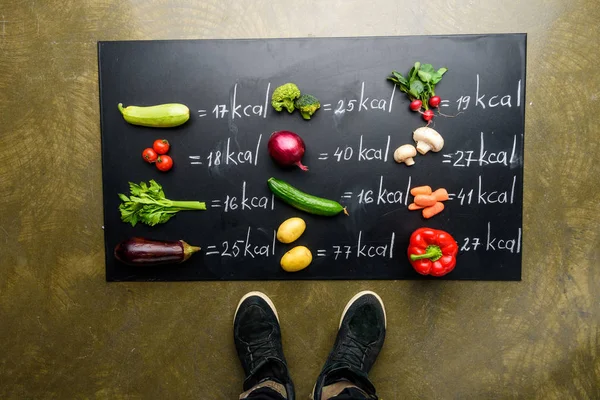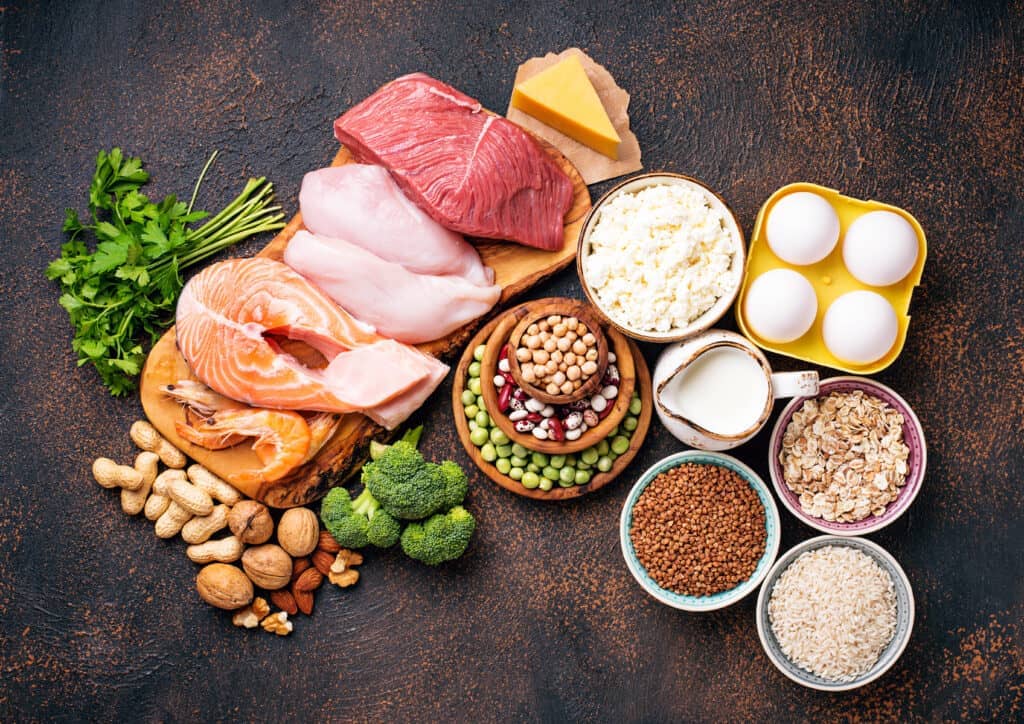Gaining weight healthily and sustainably requires a combination of proper nutrition, strength training, and consistency. If you’re looking to gain weight quickly but in a controlled, healthy manner, here are several steps you can take:
1. Increase Caloric Intake

Consuming more calories than your body burns, known as Calorie Surplus, is the foundation of weight gain. To gain weight, you need to eat more calories than your body needs to maintain your current weight. Here are three steps to achieving this.
- Track your Calories
- Choose calorie-dense foods
- Eat more meals
2. Focus on Protein for Muscle Growth

While many people focus on increasing calorie intake to gain weight, adding protein to your diet is crucial for muscle gain. When you increase your caloric intake, you want to ensure that some of those calories are coming from protein to promote muscle growth and repair.
- Protein-rich foods include:
- Lean meats (chicken, turkey, beef)
- Fish and seafood
- Eggs
- Legumes and beans
- Greek yogurt and cottage cheese
- Protein shakes or bars if you’re struggling to hit your protein targets
Aiming for 1.6 to 2.2 grams of protein per kilogram of body weight is a good starting point. If you’re unsure, a nutritionist or dietitian can help you determine the exact amount.
3. Incorporate Strength Training into Your Routine

Gaining weight doesn’t just mean eating more—it also means building muscle. Strength training or weightlifting is essential to ensure that the extra calories you consume are used for muscle growth rather than just fat gain.
- Compound exercises: Focus on big movements like squats, deadlifts, bench presses, and overhead presses. These exercises engage multiple muscle groups and can help you build muscle mass more efficiently.
- Progressive overload: Increase your muscle lifting progress, and over time, your muscles will grow and adapt, leading to gains in size and strength.
Aim for at least 3–4 strength training sessions per week for optimal results.
4. Choose Nutrient-Rich Foods

While it’s tempting to consume junk food to increase calorie intake quickly, this approach can lead to poor health outcomes in the long run. It’s important to focus on nutrient-dense foods that will provide your body with the vitamins, minerals, and fibre it needs to stay healthy while you gain weight.
- Include a variety of vegetables, fruits, and whole grains in your diet.
- Add healthy fats, like olive oil, avocado, and fatty fish (salmon, mackerel), to your meals for additional calories and to support your heart health.
- Drink smoothies or shakes that contain whole food ingredients, such as fruits, greens, yogurt, and protein powder.
5. Stay Hydrated and Drink Caloric Beverages

When you’re aiming to gain weight, staying hydrated is still important, but you can also use drinks as a way to boost your calorie intake. Instead of sticking solely to water, try these alternatives:
- Whole milk or full-fat dairy products: They provide calories, protein, and essential fats.
- Protein shakes: These can be a great way to add extra calories and protein. Blend them with fruits, nut butter, oats, and milk for a calorie-dense drink.
- Smoothies: Make smoothies with calorie-dense ingredients like peanut butter, avocado, yogurt, or honey to pack in extra calories.
6. Get Enough Sleep and Manage Stress

Sleep and stress levels play a major role in your body’s ability to gain weight. Sleep is vital for muscle recovery, growth, and overall well-being.
- Aim for 7–9 hours of quality sleep each night to support muscle repair and optimal metabolism.
- If you’re stressed or dealing with anxiety, it can impact your appetite and make it harder to eat enough. Do meditation, yoga, deep breathing and exercise to manage your stress.
7. Track your Progress

Gaining weight, especially muscle mass, is a gradual process. Tracking your progress is crucial to understanding what works for your body and making adjustments as needed. Here’s how you can keep track:
- Monitor your weight regularly, but don’t focus on the number alone. It’s important to pay attention to how your clothes fit, your strength progress, and how you feel overall.
- Take before and after photos to visually track changes in muscle growth and overall weight.
- Keep a food diary to ensure you’re eating enough to maintain a calorie surplus.
HAVE PATIENCE AND CONSISTENCY
Gaining weight takes time, patience, and consistency. Focus on a balanced approach by eating a variety of nutrient-dense, calorie-rich foods, building muscle through strength training, and getting adequate sleep. If you’re struggling to gain weight or aren’t seeing results, consider consulting with a healthcare provider or a nutritionist to help tailor a plan that works best for you.
Remember: Healthy weight gain is about nourishing your body, building muscle, and creating habits that support long-term wellness.


1 thought on “How to Gain Weight Fast”